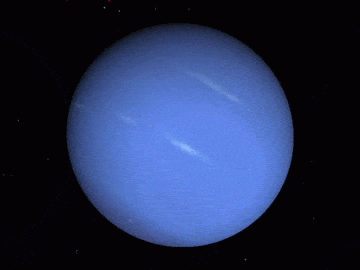Earth
 |
| [1] Earth Home to more than 7.594 billion people, Earth is the only planet that we currently know of that is habitable within the solar system. Being approximately 4.54 billion years old, this planet is "made up of three different layers: the crust, the mantle and the core" [2] similar to its 'sister planet' Venus. In terms of Earth's atmosphere, the atmosphere consists mostly of Nitrogen (78%) and Oxygen (20%) with other chemicals including Argon, Carbon Monoxide and Helium as a few. It is surprising to think that at one point our planet was at the center of the entire solar system as scientists discovered that while Earth remained static, "other celestial bodies traveled in circular orbits around it" [3] which overtime changed Earth's position within the solar system. So how is Earth habitable? Being the third closest planet to the sun, the planet is distanced far enough to be "protected from harmful solar radiation by its magnetic field" [3] but is also close enough to be able to "keep warm by an insulating atmosphere" [3] that traps sunlight. This video below helps to explain this in more detail: [4] OpenMind video on why Earth is habitable |
Another interesting feature about Earth is it's one satellite, the moon. The moon is believed to have formed approximately 4.5 billion years ago when a Mars sized meteoroid collided with Earth forming what we know as the moon today. The moon always appears to look the same from Earth due to it having no rotation meaning it orbits the earth without spinning itself. In terms of the orbital period of Earth, Earth takes 365 days to orbit the sun and travels around 1,000 miles per hour which is the equivalent of 0.286 miles per second making it the third fastest planet within the solar system. Within the solar system, Earth is currently the densest planet with an "average density of approximately 5.52 grams per cubic centimetre" [3] due to it being the "largest terrestrial planet, so the core is more compressed" [5] as a result. Another interesting fact about Earth is the origin of its name. Unlike the rest of the planets within the solar system which are named after roman and greek gods such as Mercury, Venus and Mars, Earth derives from the "English and German words, 'eor(th)e/ertha' and 'erde', respectively, which mean ground" [6]. Overall, Earth is an important planet within the solar system as it allows human life to exist and ultimately protects all of us from the vacuum of space where we simply would not survive.
References:
[1] giphy.com. [n.d.]. Earth Planet Gif by NASA. [Online] Available at: https://giphy.com/gifs/nasa-earth-planet-ux6AQI6MBwGqY [Last Accessed 14/10/2020].
[2] gsi.ie. [n.d.]. The Earth's Structure. [Online] Available at: https://www.gsi.ie/en-ie/education/our-planet-earth/Pages/The-Earth structure.aspx#:~:text=%E2%80%8B%E2%80%8BThe%20earth%20is,the%20mantle%20and%20the%20core.&text=This%20is%20the%20outside%20layer,of%20crust%3B%20oceanic%20and%20continental. [Last Accessed 14/10/2020].
[3] space-facts.com. [n.d.]. Earth Facts. [Online] Available at: https://space-facts.com/earth/ [Last Accessed 14/10/2020].
[4] OpenMind. [2015]. Why is there life on Earth?. [Online] Available at: https://www.youtube.com/watch?v=Y2BclOxSvfk [Last Accessed 14/10/2020].
[5] forum.cosmoquest.org. [2008]. Why is Earth the densest planet?. [Online] Available at: https://forum.cosmoquest.org/showthread.php?145125-Why-is-Earth-the-densest-planet#:~:text=Earth%20is%20the%20densest%20probably,the%20core%20is%20more%20compressed. [Last Accessed 14/10/2020].
[6] Bryner, M. [2012]. How Did Earth Get Its Name?. [Online] Available at: https://www.livescience.com/32274-how-did-earth-get-its-name.html#:~:text=The%20name%20%22Earth%22%20is%20derived,%2C%20respectively%2C%20which%20mean%20ground.&text=One%20interesting%20fact%20about%20its,or%20Roman%20god%20or%20goddess. [Last Accessed 14/10/2020].


Comments
Post a Comment